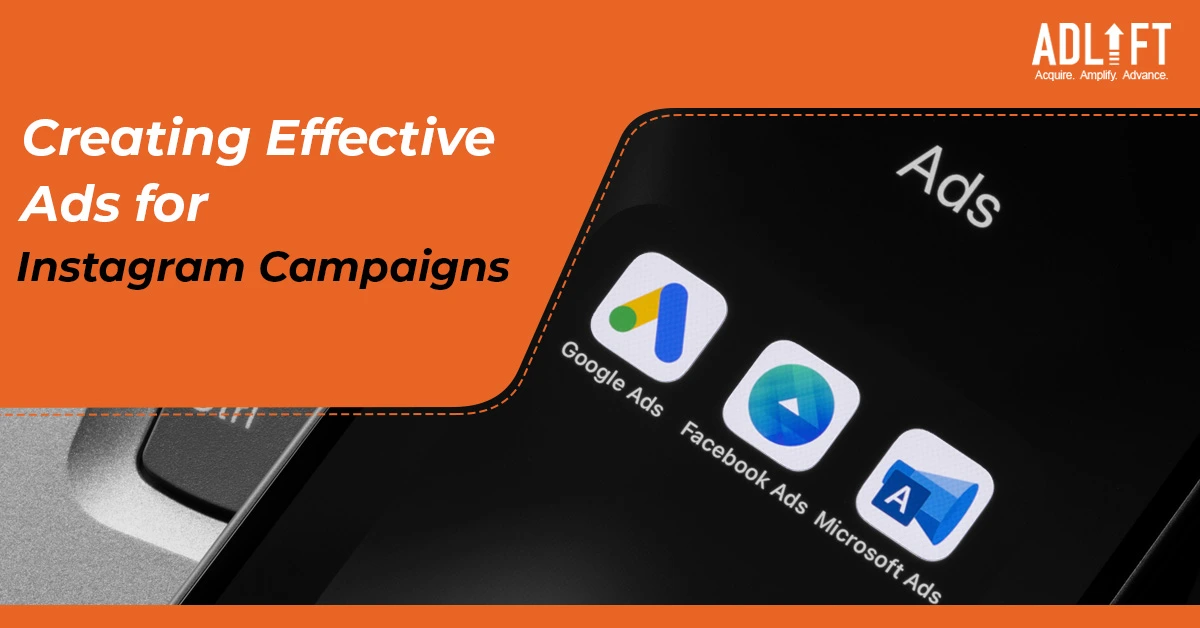Instagram Advertising 101: How to Create Effective Ads for Your Campaign

With over a billion active users, Instagram is undoubtedly a prominent social media platform that you (or your business) cannot and must not ignore. Thanks to its visually driven format and expansive user base, Instagram quickly became one of the most powerful digital marketing tools. So, no matter what your size or scale of business might be, it is time that you explore the potential on Instagram campaigns. Without much further ado, let’s dive into the basics of Instagram advertising campaigns and how you can create effective ads for your campaign.
Understanding the Basics of Instagram Campaigns
Different Types of Instagram Ads
There are four main types of Instagram ads: photo ads, video ads, carousel ads, and Stories ads. Photo and video ads appear in users’ feeds, while carousel ads allow users to swipe through multiple images or videos. Stories ads appear between users’ Stories and disappear after 24 hours. Each type of ad has its own strengths and can be used to achieve different advertising goals.
Ad Placements on Instagram
Instagram ads can be placed in various locations, including users’ feeds, Stories, Explore, and IGTV. Ad placement can impact ad performance and reach, so it’s important to choose the right placement for your campaign objectives.
Instagram Ad Formats
In addition to the four main types of Instagram ads, there are also different ad formats available, such as single image, single video, and slideshow. Each ad format has its own creative specifications and requirements, so it’s important to choose the format that best suits your content and objectives.
Defining Your Advertising Goals
Identifying Your Target Audience
Before creating an Instagram campaign, it’s important to identify your target audience. This will help you tailor your ads to their interests and behaviors, making them more likely to engage with your content. Instagram provides powerful targeting options, including demographics, interests, behaviors, and location.
Determining Your Budget
Instagram campaign is a cost-effective way to reach your target audience. To determine your budget, consider your campaign objectives, target audience, and ad placement. You can set a daily or lifetime budget and adjust it based on the performance of your ads.
Setting Clear Goals
To create a successful Instagram campaign, you need to set clear goals that align with your business objectives. These goals could be to increase brand awareness, drive website traffic, or generate sales. Clear goals help you measure the success of your Instagram campaign and make necessary adjustments.
Creating an Instagram Campaign for Advertising
Choosing the Right Ad Format
Choosing the right ad format is crucial for the success of your Instagram campaign. Consider your campaign objectives, target audience, and ad placement when choosing an ad format. For example, carousel ads are great for showcasing multiple products, while Stories ads are perfect for promoting limited-time offers.
Crafting a Compelling Ad Copy
Your ad copy should be concise, clear, and engaging. It should grab the user’s attention and encourage them to take action. Use strong headlines and calls to action to drive user engagement.
Designing Visually Appealing Ads
Instagram is a visual platform, so it’s important to create visually appealing ads that capture users’ attention. Use high-quality images or videos and incorporate your branding into your ads for your Instagram campaign. Use colors and fonts that align with your brand and create a consistent look and feel.
Launching and Monitoring Your Instagram Campaign
Launching and monitoring your Instagram campaign is crucial to its success. In this section, we’ll discuss the steps to take when setting up your ads and how to measure and analyze their performance.
Setting up your Instagram Campaign:
- Choose your objective: Before setting up your ad, you need to define your advertising goals. Instagram offers different advertising objectives to choose from, including brand awareness, reach, engagement, and conversions.
- Define your target audience: Identify the people you want to reach with your ads. Instagram allows you to target users based on their interests, behaviors, demographics, and location.
- Set your budget: Determine how much you want to spend on your ads. You can choose between a daily or lifetime budget, and Instagram will automatically optimize your ads to reach your target audience within your budget.
- Choose your ad format: Instagram offers various ad formats to choose from, including photo ads, video ads, carousel ads, and story ads. Choose the one that best fits your advertising goals.
Measuring and analyzing your Instagram campaign’s performance:
- Track your results: Instagram provides a range of metrics to help you measure the performance of your ads. These include reach, impressions, engagement, conversions, and more.
- Analyze your data: Use the data provided by Instagram to understand how your ads are performing. Analyze which ads are getting the most engagement, which ones are not performing well, and where your ads are being shown.
- Make necessary adjustments and improvements: Use your analysis to make the necessary adjustments to your ad campaign. This could mean changing your ad copy or design, targeting a different audience, or adjusting your budget.
Instagram advertising has the potential to be a powerful tool for businesses looking to reach their target audience. By understanding the basics of Instagram ads, defining your advertising goals, and properly launching and monitoring your campaign, you can create effective ads that drive results for your business. Remember to track your results, analyze your data, and make necessary adjustments to ensure the success of your Instagram campaign.
Categories
- AI
- ChatGPT
- Content Marketing
- Content Marketing & Strategy
- Digital Marketing
- Entrepreneurship
- Google Analytics
- Google Tag Manager
- Google Updates
- Influencer Marketing
- Mobile App Marketing
- Paid Marketing
- Press
- Pubcon
- Search Engine Marketing
- Search Engine Optimization
- SEO
- SEO Tools
- Social Media Marketing
Recent Posts
- How do I Verify My Business on Google to Ace Local SEO? March 17, 2025
- The Pros and Cons of Pay For Performance SEO March 17, 2025
- Website Structure for SEO: A Blueprint for Better Rankings March 17, 2025
- Keyword Cannibalization: Why It Matters for Your Company and How to Avoid It March 12, 2025
- SEO for Bing: Unlocking Opportunities for Business Owners and Marketers March 11, 2025
- Google Cached Websites: A Quick Guide to Accessing Them March 5, 2025
- Programmatic Advertising: Stop Just Talking About It, and Start Driving Real Growth (A Business Leader’s Guide to Cutting Through the Hype) March 4, 2025
- How to Use Google Trends: The Ultimate Guide for SEO & Content Marketers March 4, 2025
- Farewell, Skype: It’s the End of an Era March 3, 2025
- How to Plan and Execute a Website Migration Without Losing Rankings? February 28, 2025
Get
in Touch
Contact AdLift for a 360-degree marketing plan


